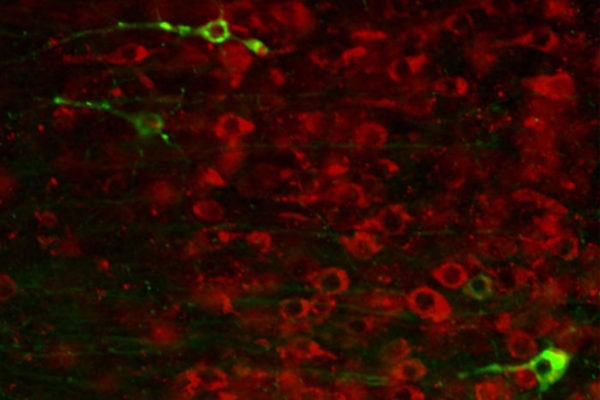Drug compound halts Alzheimer’s-related damage in mice
Researchers at the School of Medicine have shown that levels of tau protein can be reduced – and some of the neurological damage caused by tau even reversed – by a synthetic molecule that targets genetic instructions. The findings are important for Alzheimer’s and other neurological diseases.
Receptor may aid spread of Alzheimer’s and Parkinson’s in brain
School of Medicine
scientists have found a way that corrupted, disease-causing proteins
spread in the brain, potentially contributing to Alzheimer’s disease,
Parkinson’s disease and other brain-damaging disorders. Pictured are clumps of corrupted tau protein outside a nerve cell, as seen through an electron micrograph.
Researchers identify genetic marker of aggressive Alzheimer’s disease
An international team of Alzheimer’s disease experts, led by Washington University School of Medicine in St. Louis, has uncovered a gene variation that appears to predict the rate at which Alzheimer’s disease will progress. Whereas previous studies have focused on factors that influence the risk for developing Alzheimer’s, the new research points to a way to determine how rapidly the disease will progress.

